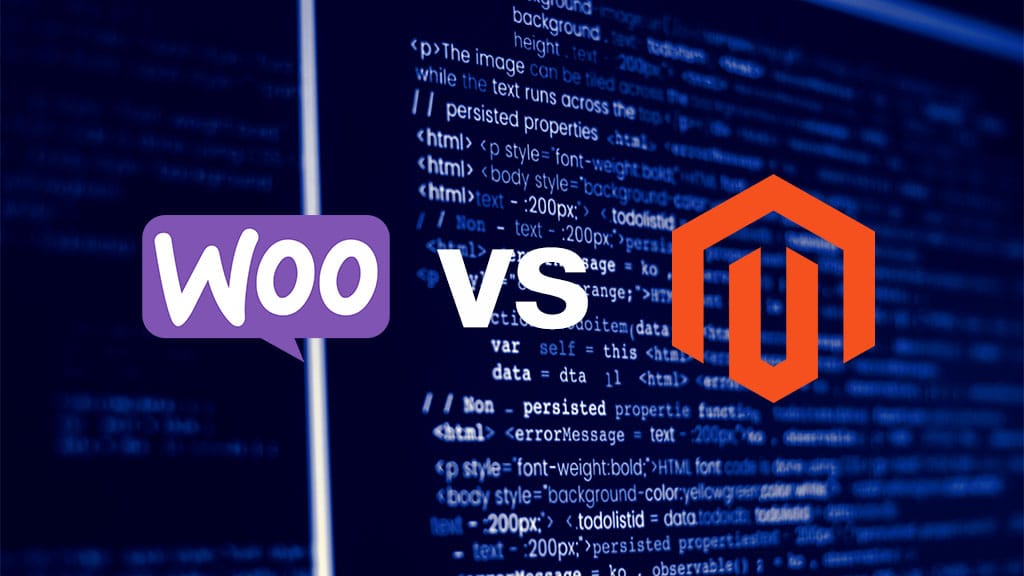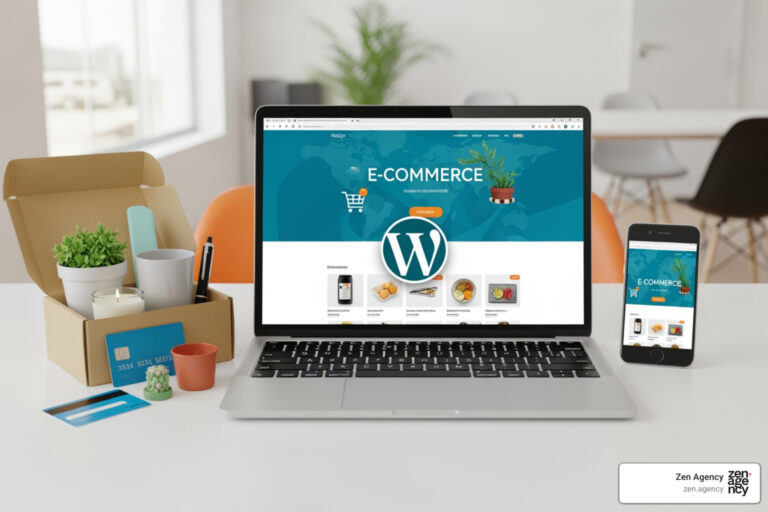Magento vs WooCommerce: Which Ecommerce Platform Is Best for Your Business?
Magento vs WooCommerce Overview
When it comes to building an ecommerce store, two of the most powerful platforms to consider are Magento and WooCommerce. Both are open-source platforms that give users significant control over their online stores, but the choice between Magento vs WooCommerce depends on various factors such as business size, technical expertise, and budget. Magento is known for its robustness and is often favored by large enterprises, while WooCommerce, as a plugin for WordPress, is highly popular among small to medium-sized businesses due to its ease of use and flexibility.
Choosing the right platform is crucial for the long-term success of your online store. In this guide, we’ll explore the key differences between WooCommerce vs Magento, breaking down their pricing, features, scalability, and more to help you decide which platform is best suited for your business needs.
Core Differences Between WooCommerce vs Magento
At their core, WooCommerce and Magento serve different types of businesses, despite both being open-source ecommerce platforms. WooCommerce is a plugin that integrates with WordPress, making it ideal for businesses that already use WordPress or are looking for a straightforward, user-friendly ecommerce solution. It’s easy to set up and customize, which is why many small to medium-sized businesses choose WooCommerce when weighing Magento or WooCommerce.
Magento, on the other hand, is a standalone platform that’s built for larger, more complex ecommerce operations. It offers a wider range of advanced features and is highly customizable, but it comes with a steeper learning curve. Magento is often the go-to choice for enterprises that need to manage large product catalogs and handle significant traffic. The platform is powerful but typically requires more technical expertise, making it better suited for businesses with dedicated development resources.
While both platforms allow for extensive customization, WooCommerce vs Magento comes down to the specific needs of your business. WooCommerce is generally easier to manage without technical expertise, while Magento is a better option for businesses that require high levels of functionality and are prepared to invest in development.
Cost Comparison: Magento or WooCommerce?
When comparing WooCommerce vs Magento from a cost perspective, there are significant differences that can impact your decision.
WooCommerce is a free plugin, which means you can install it on any WordPress site without paying for the software itself. However, costs arise from hosting, domain registration, themes, and plugins. For a basic store, hosting can start as low as $5 per month, while premium themes and plugins add extra costs. If you need advanced features, such as subscriptions or complex product options, paid extensions can range from $30 to $300 annually. Overall, WooCommerce pricing remains flexible, allowing businesses to scale their spending based on their needs.
Magento, while also open-source, tends to have higher overall costs. Magento Open Source is free, but the enterprise-level Magento Commerce comes with substantial licensing fees, which can start from $22,000 per year. Additionally, Magento requires more powerful hosting to support its complex functionalities, which leads to higher hosting costs. Premium extensions for Magento are also generally more expensive, and you’ll likely need to budget for developer support to manage and customize your store.
In the debate of Magento or WooCommerce for cost-conscious businesses, WooCommerce offers more flexibility and lower starting costs, making it a better fit for smaller operations, while Magento’s advanced features justify its higher price for larger enterprises.
Ease of Use: WooCommerce vs Magento
One of the biggest factors to consider when choosing between WooCommerce vs Magento is ease of use. For many store owners, particularly those without technical expertise, the learning curve and ease of setup play a crucial role in their decision.
WooCommerce is designed to be user-friendly, especially for those who are already familiar with WordPress. Since WooCommerce operates as a plugin, you can quickly set up a basic online store with minimal technical knowledge. The WordPress dashboard is intuitive, and WooCommerce integrates seamlessly into it, allowing you to manage products, payments, and shipping all from one place. This makes it a popular choice for beginners or small businesses looking for an easy-to-manage ecommerce solution.
Magento, in contrast, is much more complex. While it offers an incredible range of features and customization options, Magento has a steeper learning curve and is better suited to developers or those with technical skills. Setting up and managing a Magento store requires more effort, as the platform is built for larger, more intricate ecommerce operations. For businesses with in-house development teams or those prepared to hire outside support, Magento’s complexity may be worth it. However, for those seeking simplicity, WooCommerce is the easier choice between the two platforms.
Customization and Flexibility: Magento vs WooCommerce
When it comes to customization and flexibility, both platforms offer significant options, but their approaches differ dramatically.
WooCommerce, being a plugin for WordPress, inherits the customization capabilities of the broader WordPress ecosystem. It allows users to modify everything from the storefront design to back-end functionalities. WooCommerce boasts a vast library of themes and plugins, both free and premium, that allow you to extend your store’s capabilities. Whether you want to customize your product pages with a woocommerce development company, add advanced SEO features, or integrate with third-party tools, WooCommerce’s flexibility makes it a favorite for small to medium-sized businesses. The open-source nature of WooCommerce also means that if you have coding knowledge or access to developers, the sky’s the limit for customizations.
Magento, however, is built for serious customization. As a standalone platform, Magento is designed to handle complex ecommerce requirements, and its flexibility goes far beyond that of WooCommerce. With Magento, businesses can build highly tailored ecommerce experiences that cater to large-scale operations, multi-store setups, and international businesses. Magento’s customizability is one of its strongest features, but it requires technical expertise to take full advantage of it. While WooCommerce provides a more accessible path to customization, Magento excels when businesses need granular control over every aspect of their online store.
Performance and Scalability: Magento or WooCommerce?
For businesses expecting rapid growth, performance and scalability are critical factors when deciding between Magento or WooCommerce.
WooCommerce is a solid choice for small to medium-sized stores, but it relies heavily on your hosting provider for performance. As your store grows, you’ll need to upgrade to better hosting plans and use tools like caching and content delivery networks (CDNs) to ensure fast load times. WooCommerce can scale well with the right infrastructure, but scaling requires constant management and optimization.
Magento is built to handle large-scale operations from the ground up. The platform is designed for stores with high volumes of traffic and large inventories. With Magento, you have advanced tools for performance optimization and built-in scalability features that allow your store to grow without compromising performance. For enterprises that plan to scale quickly or manage large amounts of data, Magento is the clear winner in the scalability battle.
SEO Capabilities: WooCommerce vs Magento
When it comes to search engine optimization (SEO), both WooCommerce and Magento offer robust tools to help businesses rank well in search results. However, their approaches to SEO management differ slightly.
WooCommerce is built on WordPress, a platform known for its strong SEO capabilities. With plugins like Yoast SEO and All in One SEO Pack, WooCommerce allows store owners to easily manage meta descriptions, title tags, XML sitemaps, and more. The flexibility of WooCommerce ensures that even users without technical knowledge can optimize their site for search engines effectively. WooCommerce also integrates well with additional SEO tools and plugins to give businesses more control over their SEO strategies.
Magento, on the other hand, has more advanced, built-in SEO features that are geared towards larger businesses with complex SEO needs. Magento allows for better control over URL structures, redirects, and canonical tags. It also supports advanced technical SEO strategies like rich snippets and schema markup right out of the box. For businesses that require advanced SEO customization, Magento provides a more sophisticated toolkit, though it may require a developer to fully utilize these capabilities.
Security: Magento vs WooCommerce
Security is a crucial consideration when choosing between Magento vs WooCommerce, especially when dealing with sensitive customer data and transactions.
WooCommerce, as a WordPress plugin, relies on third-party security measures, such as security plugins like Wordfence or Sucuri, and secure hosting environments to protect stores. Store owners are responsible for managing updates, installing SSL certificates, and ensuring that security patches are regularly applied. While WooCommerce can be made secure, it requires ongoing attention and proper configuration to maintain a high level of protection.
Magento, particularly the Magento Commerce version, is designed with advanced security features, including regular security patches, built-in SSL support, and strong data encryption. Magento has a dedicated security center that releases updates and advisories to help store owners stay secure. For enterprises with high-security needs, Magento is often seen as the more secure platform, especially since many of its security features are integrated and automated.
Plugin and Extension Ecosystem: WooCommerce vs Magento
The plugin and extension ecosystems for both platforms are rich, but they serve different purposes depending on your store’s needs.
WooCommerce benefits from the entire WordPress plugin ecosystem, which means there are thousands of plugins available for virtually any functionality. From payment gateways to shipping calculators, WooCommerce’s extensive library of free and premium plugins allows you to easily extend your store’s capabilities.
Magento, however, has its own marketplace for extensions, with a focus on advanced ecommerce functionalities. Magento extensions tend to be more powerful but also more expensive. If you’re running a large-scale store that needs complex integrations or enterprise-level tools, Magento’s extension ecosystem will likely have the solutions you need.
Conclusion: Magento or WooCommerce – Which Is Best for You?
Choosing between Magento or WooCommerce ultimately comes down to your business size, budget, and technical expertise. If you are a small to medium-sized business looking for a cost-effective, user-friendly platform with strong SEO capabilities, WooCommerce is an excellent choice. It provides the flexibility and simplicity that many startups and small businesses need to get their store up and running quickly.
On the other hand, if you’re managing a large, complex ecommerce operation with a high volume of products and traffic, Magento is better suited for your needs. Its advanced features, security, and scalability make it ideal for enterprise-level businesses that require a robust ecommerce solution.
Still unsure which platform is best for your business? Contact Zen Agency today for expert guidance on selecting and implementing the right ecommerce solution. Whether you choose Magento or WooCommerce, we can help you build and optimize your online store for long-term success.

















